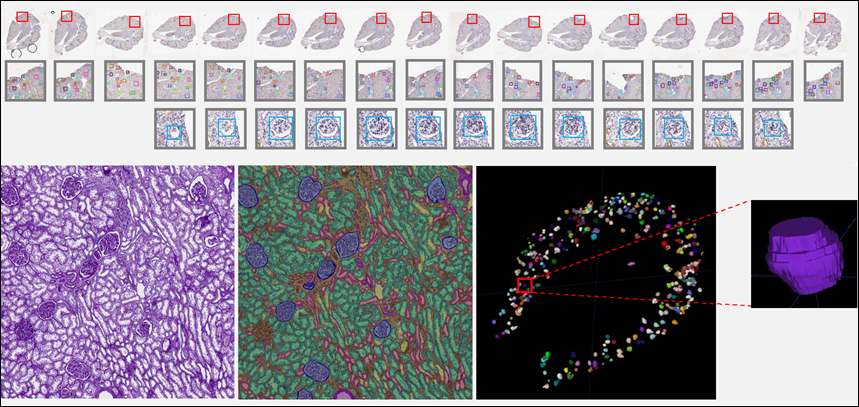
Dr. Yuankai Huo, one our teaching faculty at the Vanderbilt University Data Science Institute, is spearheading a research initiative with clinical collaborators at Vanderbilt University Medical Center to develop a quantitative and reproducible 3D analytics tool for large-scale digital analysis of kidney tissues and biopsies. The project, entitled “AI-empowered 3D Computer Vision and Image-Omics Integration for Digital Kidney Histopathology,” has received a five-year, $2.7 million grant from the National Institutes of Health.

The team’s goal is to equip clinical scientists with an advanced 3D spatial and 3D cellular-level analytics tool to investigate the anatomical-molecular association in kidney tissues, with the short-term goal of enabling AI-empowered 3D computer vision on digitized renal tissue biopsies. By allowing renal pathologists to perform a reproducible 3D phenotyping on 2D whole slide images, this technology has the potential to revolutionize the understanding and diagnosis of kidney diseases.
Huo’s research aims to pave the way for a fully quantitative, high-throughput, and reproducible 3D image-molecular analytics (spatial-transcriptomics) for medical image computing and bioinformatics communities. As an early-career principal investigator, Huo expressed gratitude for the Vanderbilt Institute for Surgery and Engineering seed grant that helped fund the pilot data collection phase of the project. His clinical collaborators on this project are Haichun Yang, Agnes B. Fogo, and Shilin Zhao — all from Vanderbilt University Medical Center.
The success of this project will not only impact the field of renal pathology but will also set the stage for future advancements in medical image computing and bioinformatics. As a teaching faculty member of the Vanderbilt University Data Science Institute, Dr. Huo’s groundbreaking research underscores the important role of data science in shaping the future of healthcare.